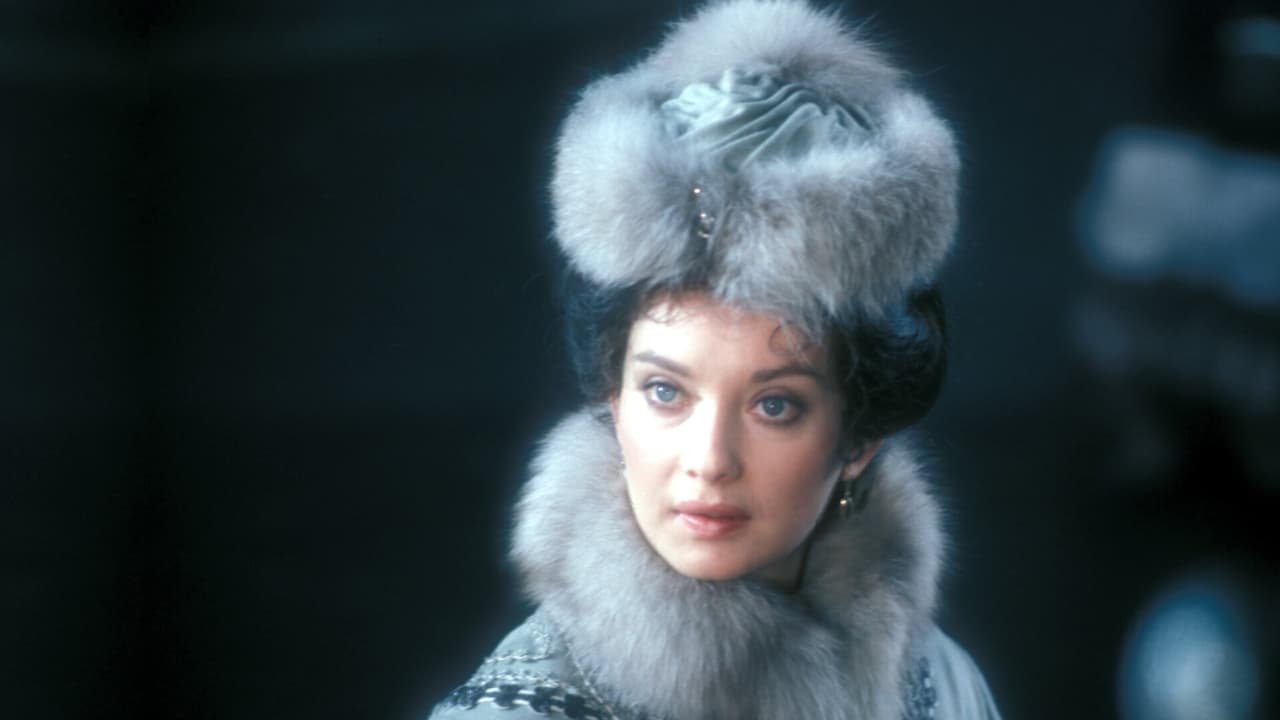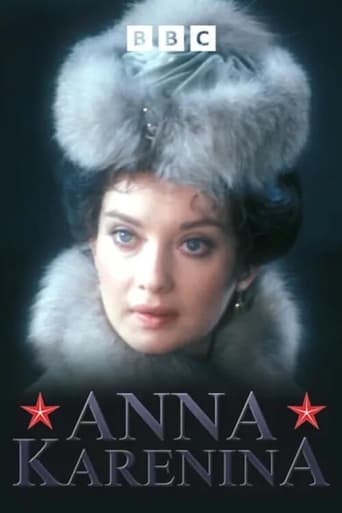

Whether this is better than other dramatizations of the book is irrelevant. If it's bad, it's bad--and this is bad. The fact that this version covers far more of the book--including Kostya Levin's story, which I think is more interesting than Anna's--just makes its atrocities even more unbearable.What bothered me much more than its distortions of the book's characters and deviations from its plot is its dragging THE WHOLE BOOK down to the level of a soap opera. From the very first scene with Countess Vronskaya and Anna on the train, and in every single following scene, all the way through to the end, I felt like I was watching As The Word Turns--all 13,858 episodes. It made me sick.To me, one of Tolstoy's most astonishing achievements in this book is that it NEVER--not for one scene or one paragraph or one word--falls into melodrama. Every character is alive and real, everything they do is believable and organic. Nothing is overblown or contrived.This production is the exact opposite. EVERYTHING is overblown, EVERYTHING feels contrived and phony and stupid. It takes a very great book and turns it into cheap melodrama. What a disgrace.
... View MoreWhile the best film versions are the 1967 Russian and 1935 Greta Garbo films, the best overall adaptation seen so far of Tolstoy's masterpiece Anna Karenina goes to this mini-series, the only adaptation personally seen so far that doesn't have any major debits.Visually, it is a real beauty, with some breath taking scenery and sets, opulent costume design and elegant photography with lots of handsome colour. The period detail is not quite as evocative as it is in the 1967 and 1997 (with Sophie Marceau) films, but it is still remarkably authentic for a 70s made-for-TV mini-series. The music is appropriate and hauntingly beautiful, wisely keeping itself to the background in crucial scenes to let the dialogue really register, including a rare chance of hearing glimpses of Tchaikovsky's Manfred Symphony used for a mini-series. The mini-series also has a very thought-provoking, beautifully structured and literate script, that feels and sounds like Tolstoy's writing coming to life from the pages of the novel, covering all the major events and more and with the full emotional impact and more.The story of Anna Karenina is very faithfully adapted here, one of the most faithful treatments of any adaptation of the novel in fact. In terms of detail, the major events, the subplots, the themes and the characters are all here, and not in Cliff Notes form, this is the real deal. The long length, with the 9 hour plus duration and 10 episodes, was more than appropriate and allowed richer characterisation, more of the story (this adaptation has the most well developed Levin by far for example) and all the material to be fully expanded upon (things that a 2-4 hour film couldn't do as effectively), as was the steady and very measured pacing to allow one to get fully immersed in the atmosphere and let the many nuances of the story and text come through. Anna Karenina (1977) is beautifully directed throughout, and the characters and their situations are always interesting.Nicola Pagett is outstanding as a particularly passionately vulnerable Anna, which is played with pitch-perfect heartfelt pathos, and Stuart Wilson blows all the Vronskys in the film adaptations out of the water in a portrayal that is much more complex than any of the portrayals in any of the film versions, where half of the cinematic Vronskys make for problematic casting. The chemistry between the two of them is very believable with no sudden transitions and it doesn't feel rushed. Eric Porter's Karenin, a role played to a consistently high level in all the adaptations even in the weaker ones, is more conflicted than most, rather than being too sympathetic or too much of a reptile, more of a man caught in situations that more expose his weaknesses than his strengths, and he plays it magnificently. Robert Swann stands out in support as an ambivalent and multi-layered Levin, in a cast where everybody comes off strongly with few if any weak links.All in all, a superb adaptation, adapted Tolstoy rarely gets much better than this. 10/10 Bethany Cox
... View MoreAfter recently reading and falling in love with the book, I started doing research into the filmed adaptations of the novel. I first watched the BBC adaptation from 2000, which impressed me, but I was somewhat disappointed by the amount of editing done to the story.I, therefore, picked up this version with great anticipation, because it is much longer (10 hours) and I was hoping would therefore be a more fully realized version of the story.Unfortunately, I barely made it through the first hour before turning it off and giving up on it.The whole production felt too staged and unnatural for my taste. The actors looked like English 'thespians' dressed up in stock period costumes rather than Russian aristocrats. And they all more or less spoke in the same loud and clear stage voice making the conversations feel less intimate than I would have liked.Camera-work and directing was mostly just like that of a noontime soap opera.I'm sure that in 1977 this was perfectly acceptable, but nowadays, it is just not good enough to spend time watching. It certainly does no justice to what is often considered one of the greatest novels ever written.If you are looking for a filmed adaptation of this story, stick with the more recent version from 2000. While it is a somewhat edited down version of the story, it is a much superior product that does a far better job of fully capturing the richness of Tolstoy's novel.
... View MoreI have to admit that I saw this series only once (in 1978), and my memory of it has faded somewhat. Nevertheless, I still vividly recall its vibrant reproduction of Tolstoy's masterpiece, its authentic characterizations, and its remarkable set pieces, especially given the fact that this was a television production.Standouts include Nicola Pagett's complicated portrayal of Anna, and Robert Swann as the ambivalent Levin. The intoxicating scene of Levin and his peasants bringing in the harvest, and Anna's tragic demise are worth viewing again.Hope the powers that be resurrect this one in the near future!
... View More